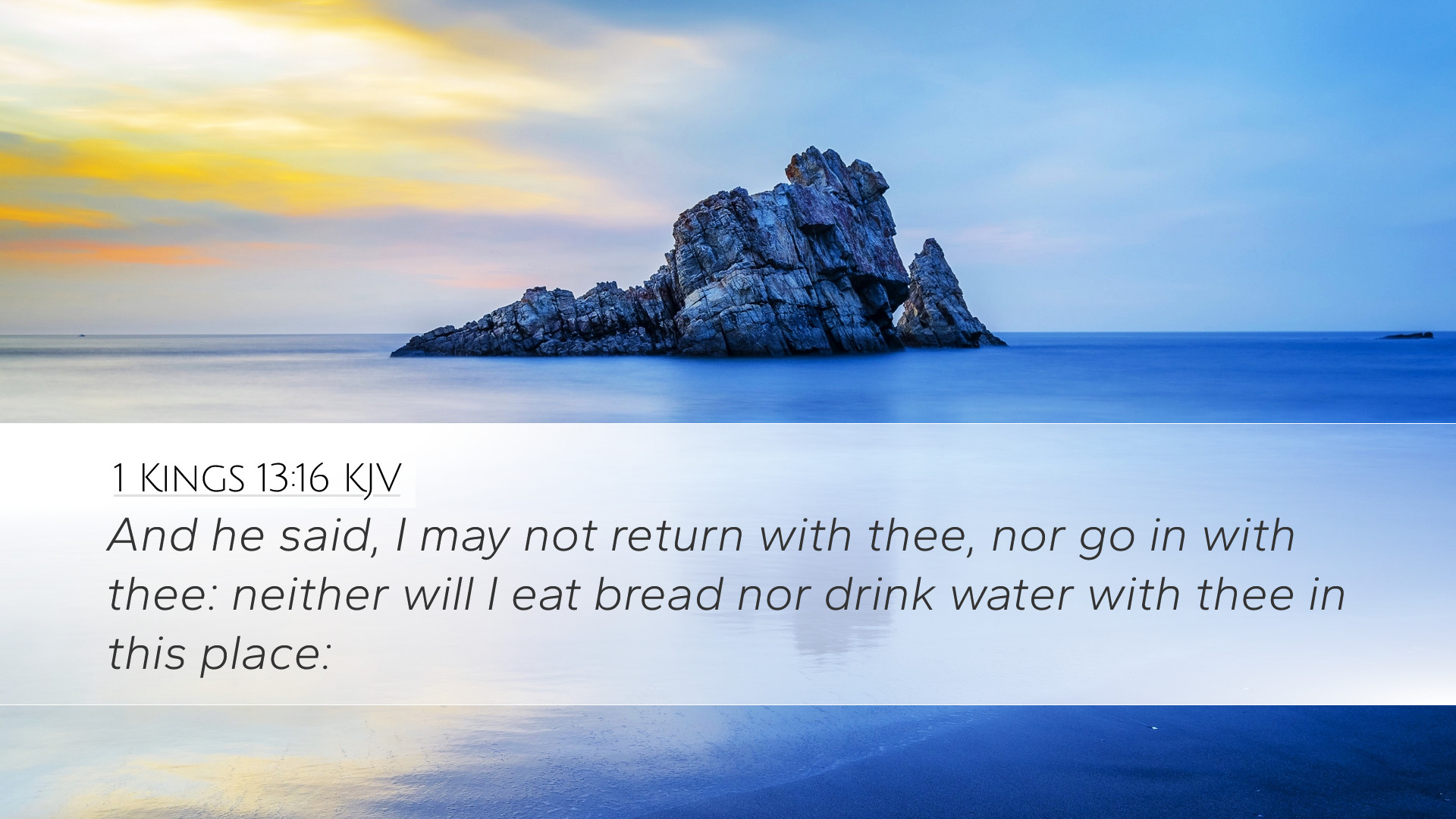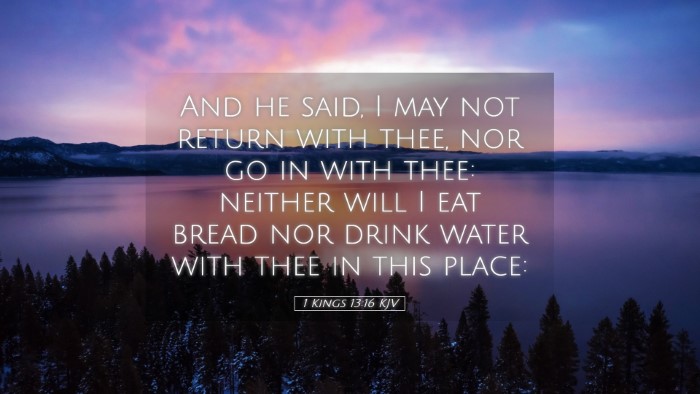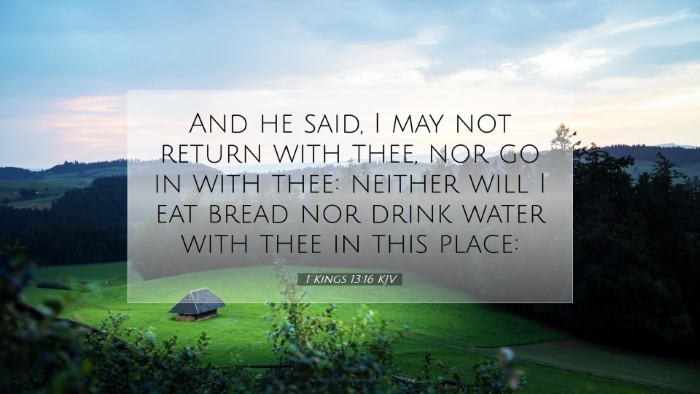Commentary on 1 Kings 13:16
Verse Overview: 1 Kings 13:16 captures a critical moment in the narrative of the divided kingdom of Israel. It involves the encounter between the man of God and an old prophet, showcasing themes of discernment, obedience, and the danger of compromise.
Text of the Verse
"And he said, I may not return with thee, nor go in with thee: neither will I eat bread nor drink water with thee in this place; for it was said to me by the word of the LORD, Thou shalt eat no bread nor drink water there, nor turn again to go by the way that thou camest." (1 Kings 13:16, KJV)
Commentary Insights
The Context of the Passage
The story of 1 Kings 13 describes a prophet sent from Judah to Bethel to deliver a message of judgment against the altar erected by Jeroboam. This passage explicitly shows the prophet's commitment to obeying God’s command, which forbids him from eating or drinking in the very place where he was sent on a divine mission.
Obedience to Divine Command
Matthew Henry emphasizes the importance of obedience as a central theme of the narrative. The man of God, despite the appeal from the old prophet, remains steadfast in adhering to God's instructions. Henry writes, "He was under divine orders, and could not with a good conscience break them for any man's invitation." This highlights the seriousness with which God’s commands should be taken.
Albert Barnes complements this by noting that the mandate given to the man of God was not merely a suggestion but an absolute directive from the Lord. He states, “The command was explicit and left no room for negotiation.” This emphasizes that divine revelation calls for strict adherence, without exceptions.
The Role of the Old Prophet
Adam Clarke points out that the old prophet's intentions may have been good but were misguided. Clarke asserts that the old prophet’s invitation represents a significant temptation. He states, "He appeared as a friend but was, in essence, a deceitful adversary." The encounter serves as a warning about the potential for misguidance, even from seemingly pious sources.
Furthermore, the old prophet's role serves to illustrate how spiritual leaders can sometimes lead others astray, either through greed, jealousy, or a misguided sense of duty. This insight calls for careful discernment among those in ministry.
Temptation and Discernment
Both Barnes and Henry highlight the temptation faced by the man of God. Barnes remarks, "It was a test of his faithfulness," suggesting that this encounter reveals the reality of spiritual warfare. The exchange reflects the broader issue of discernment within the faith community. As Henry suggests, "We must be on our guard, lest, in our quest for fellowship, we compromise our faith." This encourages ministers and theologians to remain vigilant against spiritual complacency.
Application for Today’s Believers
In light of this passage, pastors and students of the Word are reminded of the necessity of clarity in one’s calling. The man of God, despite encountering an esteemed figure, had to hold firm to his divine directive. The implications for modern believers are profound:
- Commitment to God's Word: Staying committed to biblical truth, even when tempted to compromise by good intentions of others.
- Discernment in Fellowship: Evaluating relationships and teachings through the lens of Scripture.
- Awareness of Spiritual Deception: Recognizing that not all who claim to speak for God truly do.
Concluding Thoughts
The passage in 1 Kings 13:16 serves as a sobering reminder of the importance of faithfulness to God’s commands. It compels believers to evaluate their lives, their decisions, and their associations in light of Scripture. Both Henry and Clarke help illuminate the text's implications, inviting pastors, students, and scholars to engage deeply with the Word of God. As they navigate their faith journeys, may they strive for absolute obedience to God's voice, resist the allure of compromise, and exhibit discernment amidst the complexities of spiritual life.


